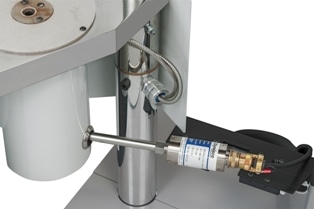The new LCR7000 Series Capillary Rheometers provide a wide range of new features and will also fulfill the requirements of a 24-hour-a-day shop floor operation while maintaining the highest possible level of sensitivity, repeatability, and accuracy.
These rheometers provide the most sophisticated materials characterization, reporting capabilities, and data analysis in addition to being versatile and easy to use. It is possible to use the LCR series with a barrel mounted pressure transducer and a standard load cell.
Sophisticated Software
LAB KARS (Kayeness Advanced Rheology Software) is considered to be the most powerful and simple to use rheological Windows™-based software package currently available. Some of its features that are easily useable include Carreau, Bagley and Rabinowitsch Corrections plus power law, and Modified Cross and polynomial viscosity models.
This software will help users to merge multiple data files from thermal stability tests, shear rate, or shear stress. Viscosity variations in different lots of material can be rapidly identified using the resident KARS SQC module. A program for the correlation of melt viscosity to intrinsic viscosity, for Nylon and PET, is also included.
Real-Time Display
In addition to its other powerful features, LAB KARS for Windows™ provides a real-time display of pressure or force versus time as a test progresses. The steady-state flow condition for the material can be detected by the operator when this feature is used. Additionally, it is also possible to identify the presence of contamination, bubbles, or unmelted resin in the material from spikes in the force versus time curve.
Features and Benefits
The key features and benefits of the LCR7000 Series Capillary Rheometers are as follows:
- LAB KARS, advanced rheology software
- All digital calibration
- Unique algorithms for polymer melt stability
- Increased force range and speed
- Tungsten carbide dies and a honed and hardened tool steel barrel guarantees extended years of service
- Enhanced software and electronics enable up to 45 shear stress or shear rate data points per test
- Precision servo-drive motor and transducers facilitate tight control of stress and rate mode tests
- Adaptive PID temperature control algorithm and multiple barrel heating zones provide uniform and precise heat up to 430 °C (500 °C optional for Model 7000 and 7001 only)
- Test parameters can be downloaded from the PC by bi-directional communications
